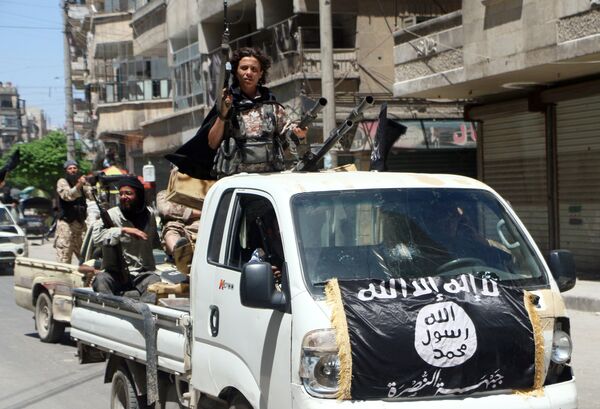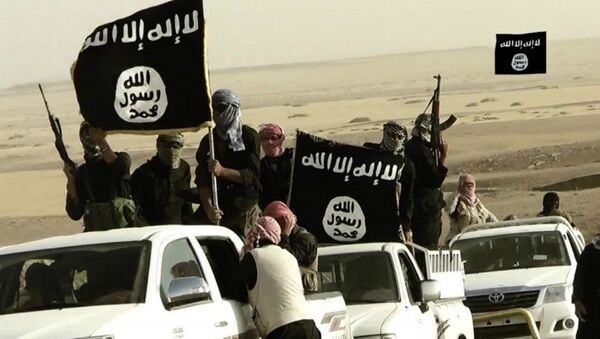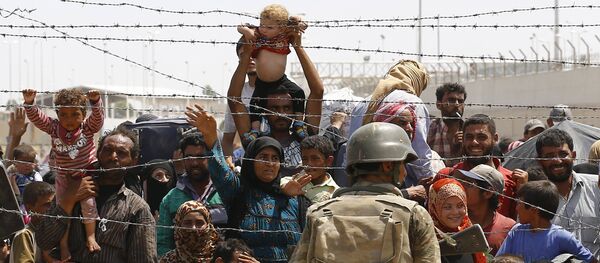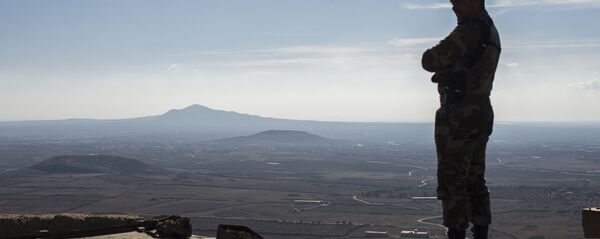Daesh may be in retreat, with the group's territory shrinking due to the ongoing combined efforts of Russia, Syria and Turkey, but the group is clinging on to the areas that remain under their control for dear life. For Loretta Napoleoni, author of three works on Daesh, their steely grip is understandable.
#merchantsofmen #refugees #isis #MigrantCrisis pic.twitter.com/Xqd1C8N7YP
— Loretta Napoleoni (@l_napoleoni) January 9, 2017
"It does not matter if the 'caliphate' is large or small — it's just important they control some area of land. Establishing a state of some kind has been their objective since their creation, and they first achieved it well-before 2014. They may have lost ground, but the area they control is still much larger than it was three years ago," Napoleoni told Sputnik.
Loretta Napoleoni goes on to explain that managing a state-like entity is important for several reasons.
For one, it provides the bulk of their income — the larger the area, the more citizens to tax.
And two, a state can be a powerful recruitment tool, attracting jihadi fighters and inspiring terrorist action both within and out of the MENA region. As Napoleoni says, it's easier, and more attractive, for people to fight for a tangible entity than a mere idea, or nebulous, anonymous group.
Other groups in the region are faring far worse, among them, Al-Nusra. The group, openly funded by Qatar and Saudi Arabia, was until 2016 avowedly the Syrian branch of al-Qaeda, and has long been rumored to be closely connected with Daesh. Napoleoni says the group is dying out due to the ongoing, combined efforts of Syria and Russia. There has been a high degree of fluidity between the group and Daesh, with people moving freely from one to the other. She foresees a potential "merger" of the two in the near future.

As for how much longer Daesh can hold on, Napoleoni believes that very much depends on what President-elect Donald Trump does in office, but she feels it's likely he'll stand up more to the Kingdom than outgoing Obama did, and failed presidential hopeful Hillary Clinton would have — after all, Trump didn't depend on Saudi funding for his election campaign.
Moreover, she says, if suggestions of a closer relationship between the US and Russia, if not a fully-fledged alliance, come to pass, it will mean the end of the group entirely.
"Russia already wields the power to completely destroy the jihadis. A deal with Trump would be very welcome, and highly necessary. The country's too important in the world to be frozen out any longer. Together, they will sort out the Middle East," Napoleoni told Sputnik.
The move, however, will be fundamental to ending the group's reign of terror, she tells Sputnik — sectarian hatreds would be calmed, and the bankrolling of armed groups by other countries would end in turn.
"The moment the money stops flowing, these groups disappear," she told Sputnik.
In a strange sense, if that transpires, Daesh will have indirectly achieved one of their original objectives. Early propaganda issued by the group called for the death of Sykes-Picot, the Anglo-French agreement that carved up the formerly sprawling Ottoman Empire into manageable, nation-state chunks for ease of imperial exploitation.
"Since 2014, the agreement has collapsed. Borders within much of the Middle East no longer exist. Partitions that actually reflect the reality of the region must now follow," Napoleoni concluded.




